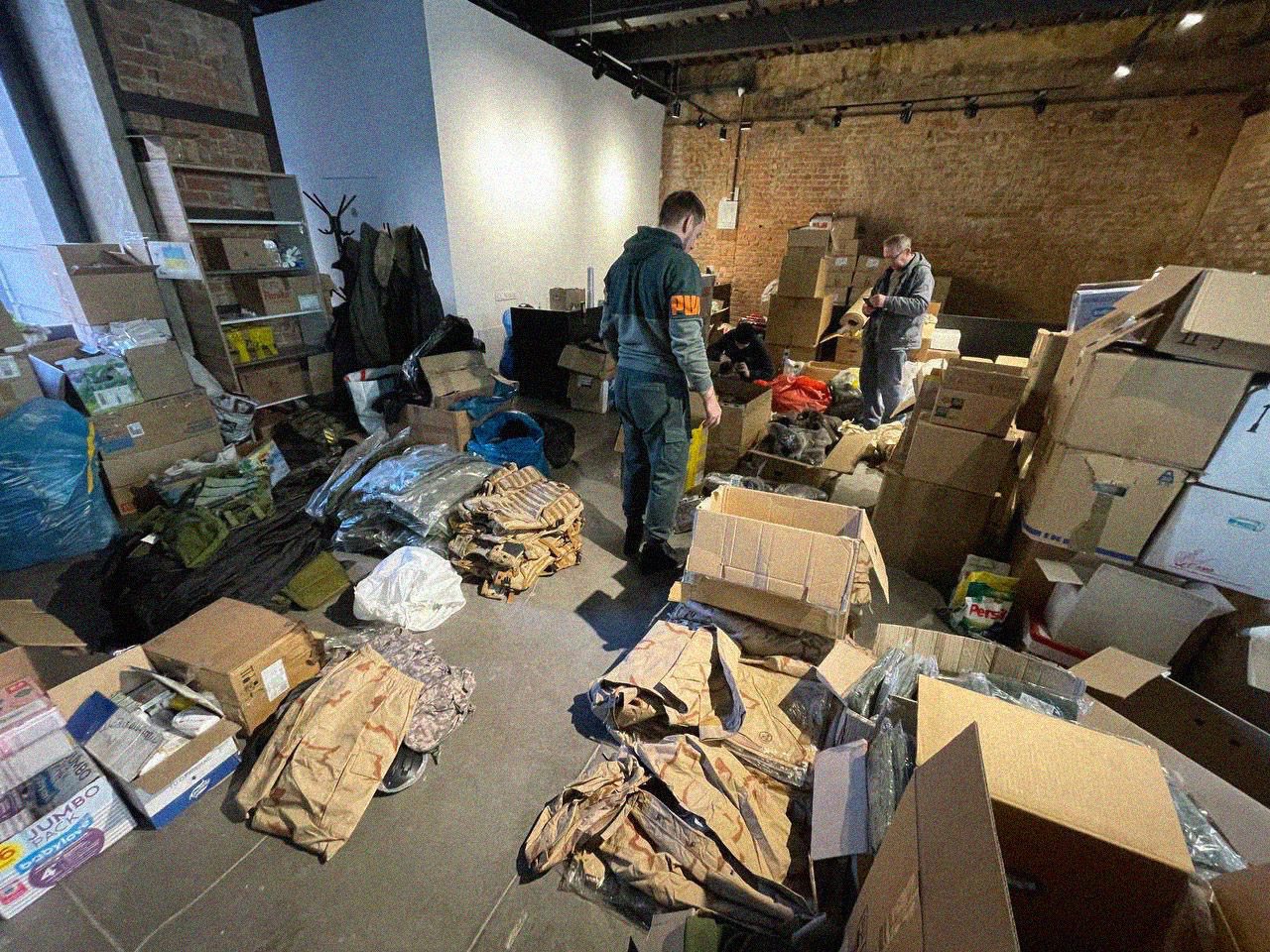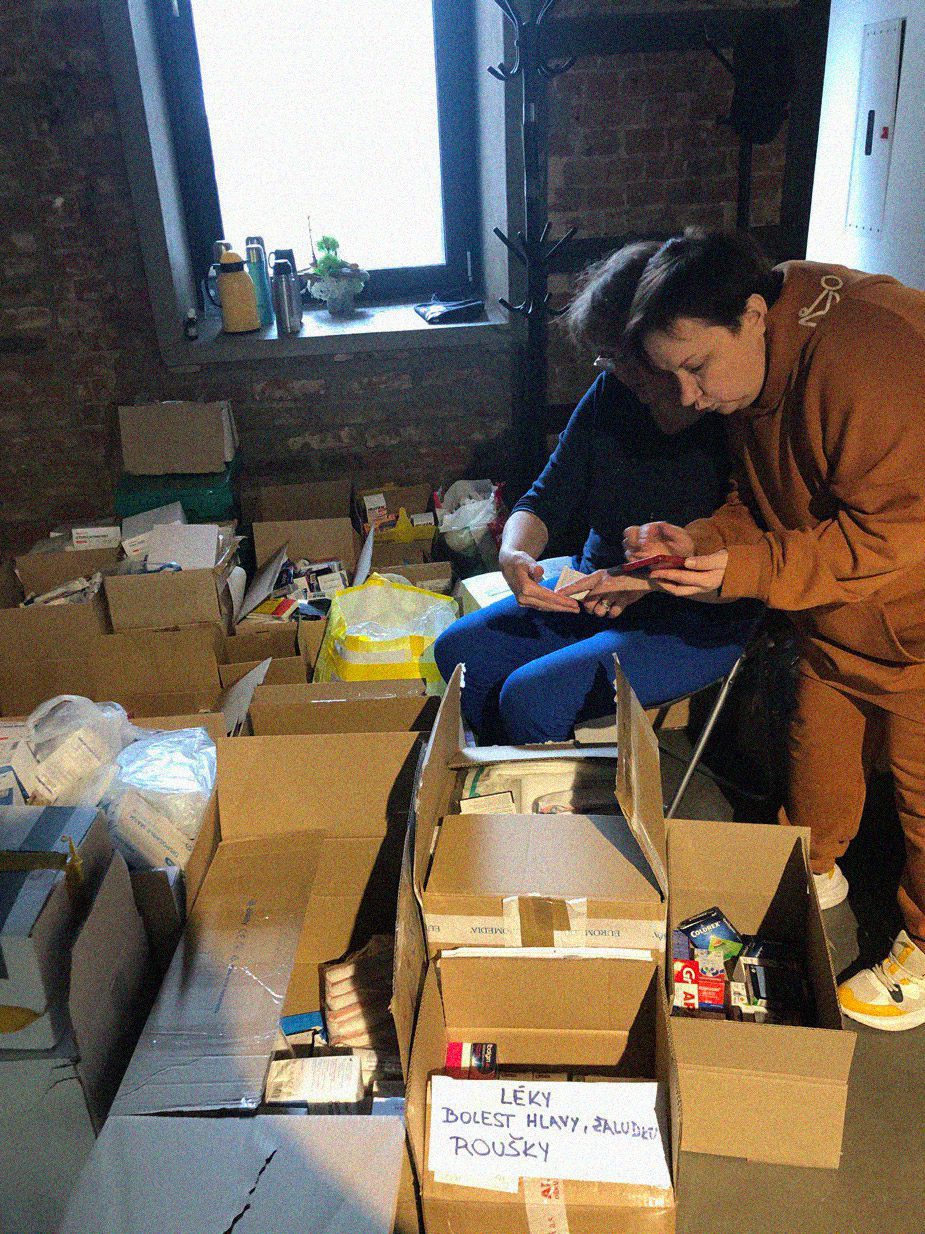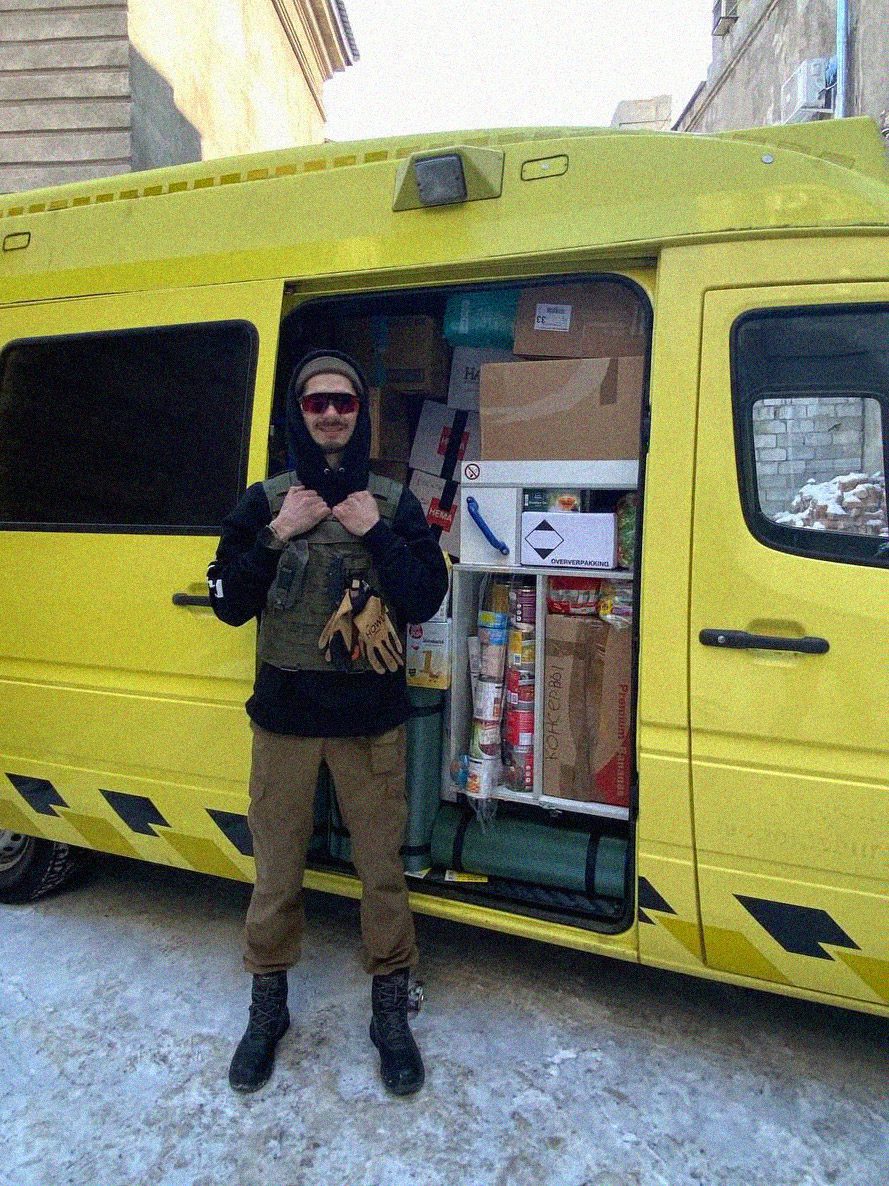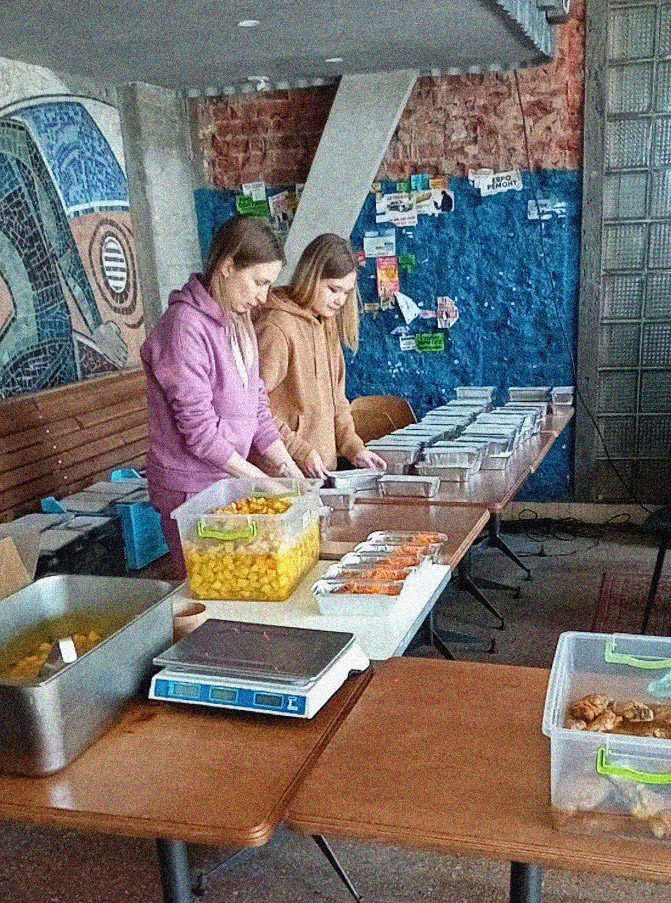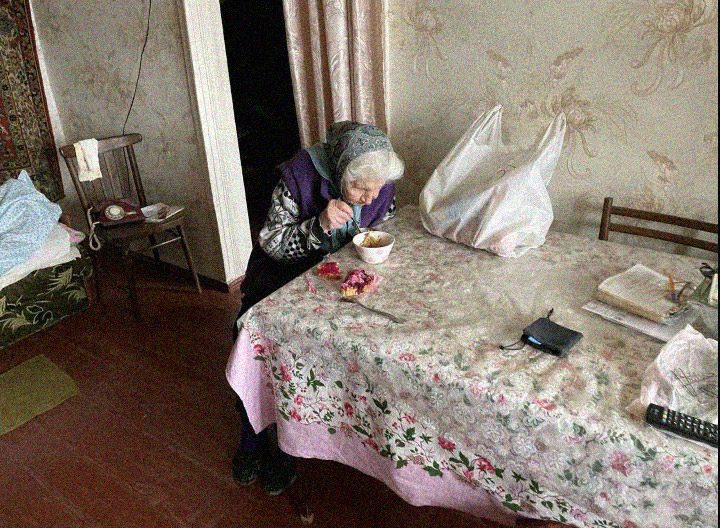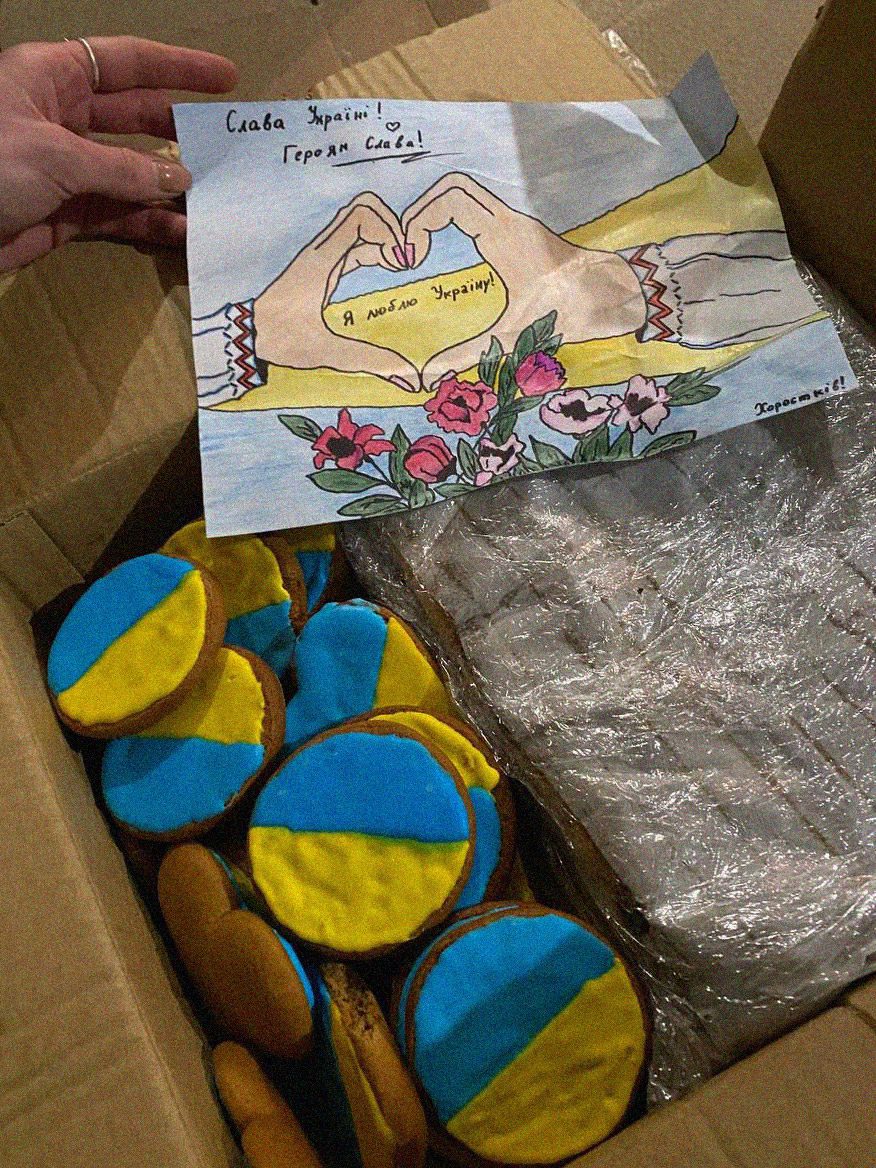“It’s Dangerous, but Someone Has to Do It”. Two Stories from Kharkiv about Aid despite Shelling and Bombing
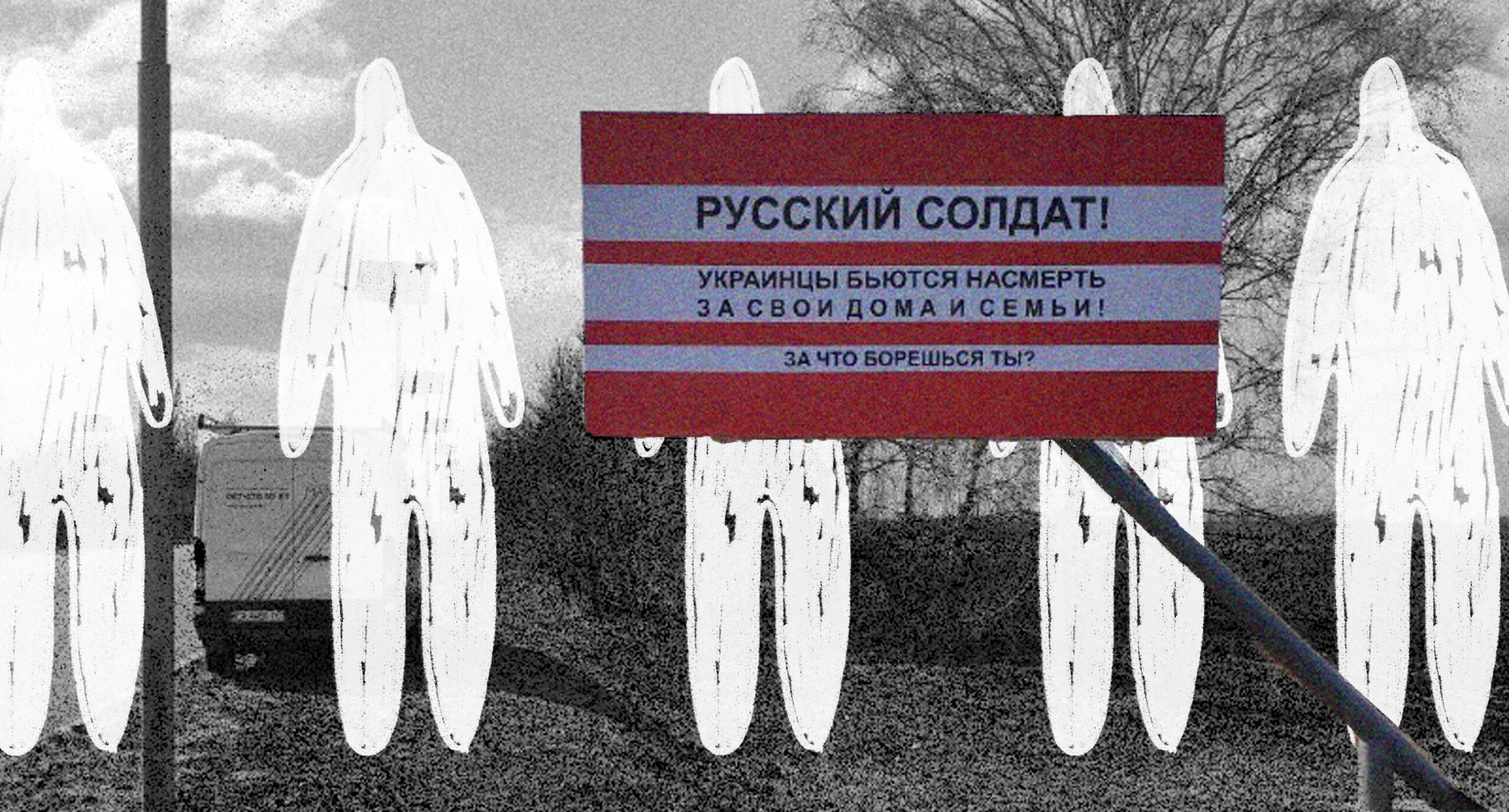
From the very first day of the war, Kharkiv has been one of the hottest spots. The Russian army has not only destroyed a great part of the city’s infrastructure but continues to shell residential areas. There are still people living there, however. Some are physically unable to leave and others stay to help them and to help the armed forces defend the city. Zaborona journalist Polina Vernyhor spoke to two residents of Kharkiv, who interrupted their careers to volunteer for the good of their city and its people.
Olha, architect
The first days of the war
I had hoped until the very last minute that it would not come to war. Two days before the Russian invasion I flew to Colombia for a planned visit to various cities – an architectural tour. But when I arrived and opened the office chat, I saw that the war had begun. I decided immediately and bought the last available ticket back which cost $1600. I flew to Budapest, then by bus to Uzhhorod, then to Lviv, and from there by train.
My husband was waiting for me here and we immediately called my sister in the United States. Together we decided that we would arm our boys with the most up-to-date equipment. From the start, we decided that we were not going to redistribute things that were heading to Ukraine anyway, and organized a way to get donations from America. We purchase the necessary equipment in Europe and deliver it. It’s a very difficult process, but efficient because we can defeat the overpowering force of the orcs only by using our intelligence.
About volunteering
Our acquaintances started to join us, especially a female friend of mine who nowadays has sleepless nights just like I do. We recently even registered a civic organization called “[Getting] Through the War”. We named it that way especially to stress that we were organizing just for the duration of the war. I have a wonderful business, a great company, and plan to work there again after the war. But I think that it doesn’t make sense to consider rebuilding Kharkiv in wartime. New projectiles hit every minute, so what is the point of thinking about rebuilding when you don’t know where the next crater will be?

Photo courtesy of Olha
At the moment our volunteering has two parts. The first is ammunition and the maximal safety of the armed forces and territorial defense. You can’t win a war with Pampers that is why we buy thermal imagers, quadcopters, bulletproof vests, etc.
The second part entails helping vulnerable groups. This happened by accident but I think it is very important. A friend of mine has been disabled since her childhood. She mentioned that, although she is unable to shop for food or medicine, there hadn’t been a social worker to see her from the first day of the war.
In general, Kharkiv’s social services just left the city. They literally left their clients alone with their problems and didn’t even pass on their contact information to volunteers. The database of those in need is inaccessible so we had to gather their addresses by just asking around. We have twenty-six addresses at the moment.
In the beginning, we simply delivered food and medicines but then realized we had another resource – people. So we found out who had lost their jobs because of the war and suggested that they help look after the disabled and seniors living alone. We pay them a salary, give them groceries, detergents and everything they need.
Recently we opened a home for people who need round-the-clock care. We found an empty dormitory, cleaned it up, and moved some of the patients there.

Photo courtesy of Olha
My sister lives in Seattle and is collecting donations there. Her daughter Is also using social media to publish bank account numbers for donations. We will be registering at the tax office and we’ll have an account that can receive donations from all over the world.
About those who stayed behind
Very many people are leaving Kharkiv. Those who stayed here – they are our people. I have a friend whom I’ve known for thirty years. We went to college together. But he didn’t call me when the war started to evacuate his children or to send money or some other aid. He didn’t call when they started daily bombardment, but when a bomb his building he asked me to check on his apartment. That’s how it is: some people don’t have a homeland, they just have an apartment. Those who stayed behind are real people who have a sense of homeland and hometown.
Of course, I’m not talking about everyone. Some people had to leave and I’m not judging them. I have four children. I sent the two little ones to a friend in Lviv and asked the two older daughters, 24 and 30, to leave. I told them they are our gene pool and that we here have already lived and can allow ourselves to stay and defend our country. I would like them to live and give me grandchildren.
But my family understands why I am volunteering. It’s dangerous but someone has to do it. There are eighteen-year-old boys defending Kharkiv. I think I should be here instead of an eighteen-year-old boy. I shouldn’t put all of the responsibility on his shoulders.
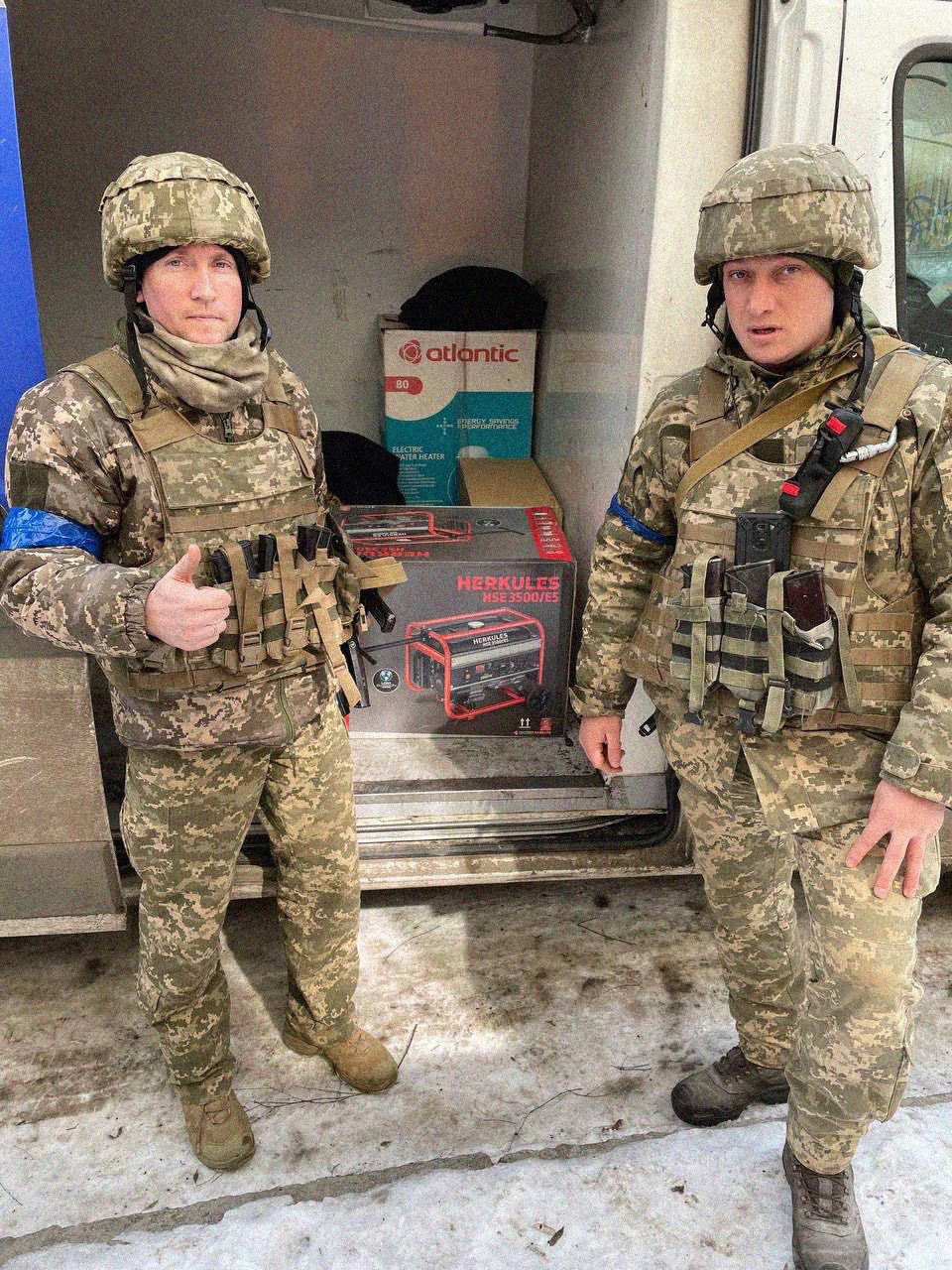
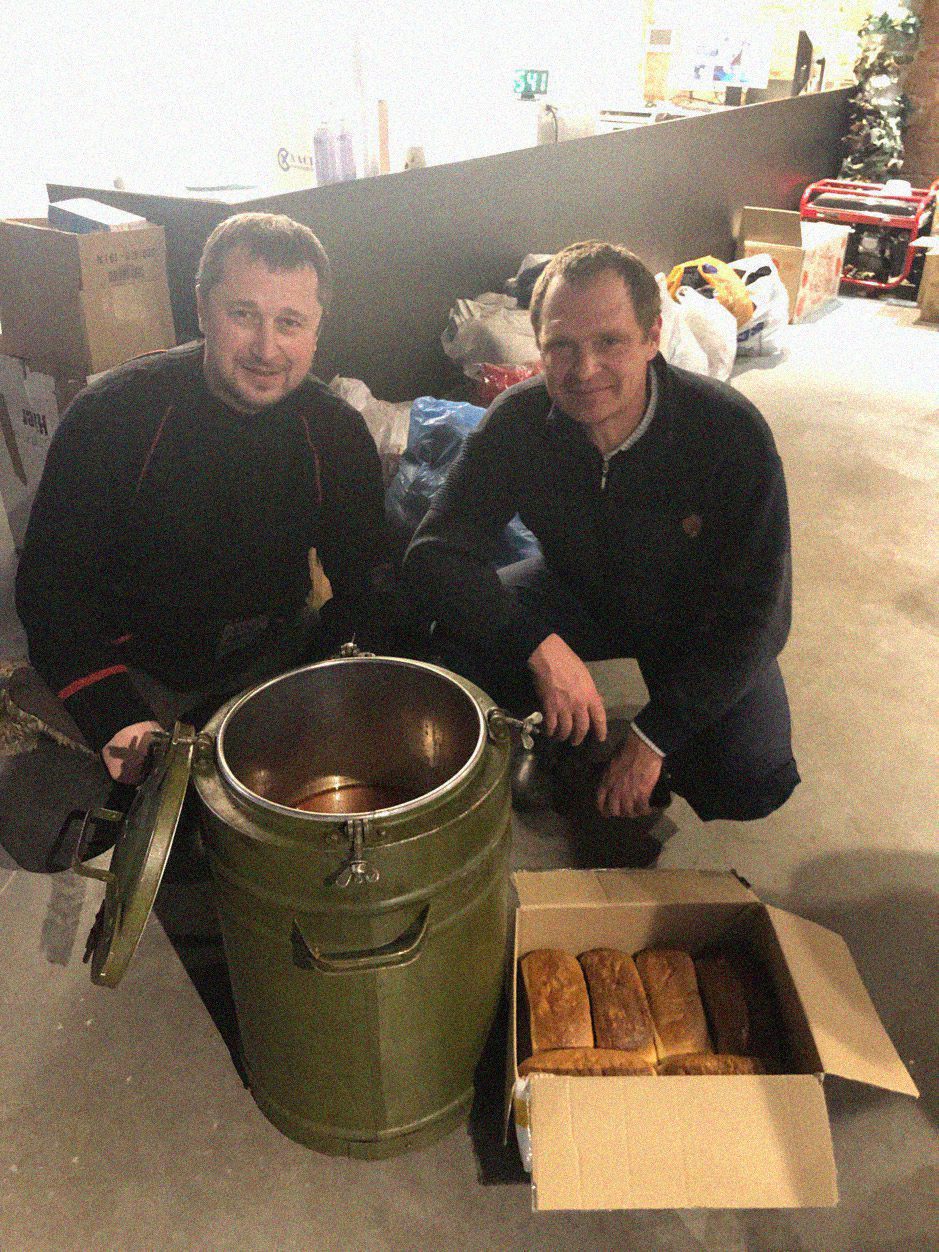
About difficulties
I think there is nothing difficult here. My position is that volunteering is not a big deal: pick up a package here, distribute humanitarian aid there, deliver something else. It is very important here to closely watch where the donated money is going so that we spend it on things that are really necessary. We don’t want to duplicate what the government is doing but deliver where the government cannot, since it is working in a general way. I think that the essence of volunteer work is to correct the state’s shortcomings.
There are all kinds of people and sometimes they’re quite complicated. There was a situation on the fourth day, for example. A woman whose distant relatives lived at Saltivka contacted us. Their building was in an area where you can only move around in armor. Our boys drove out there to find the building had no windows left. They thought the building was abandoned but the family was still there. They had electricity but no water or heat. The man was disabled from birth and the woman was very old. So when they brought her some food she said, “ Why are you doing this?” These are people who have already made a decision and no longer react rationally. They have crossed a certain border.
There are also happy, normal grannies. They are just fine. They order things like, “Bring me some fresh cucumbers,” or other things. I tell them, “Granny, there will be fresh cucumbers after the war.” We know that old people are not easy and were prepared for it. I think this isn’t less important; it’s another side of the war. For us in Ukraine every person, every individual is of the highest value. Even those who have decided that their life is over are valuable. We love them and will take care of them.
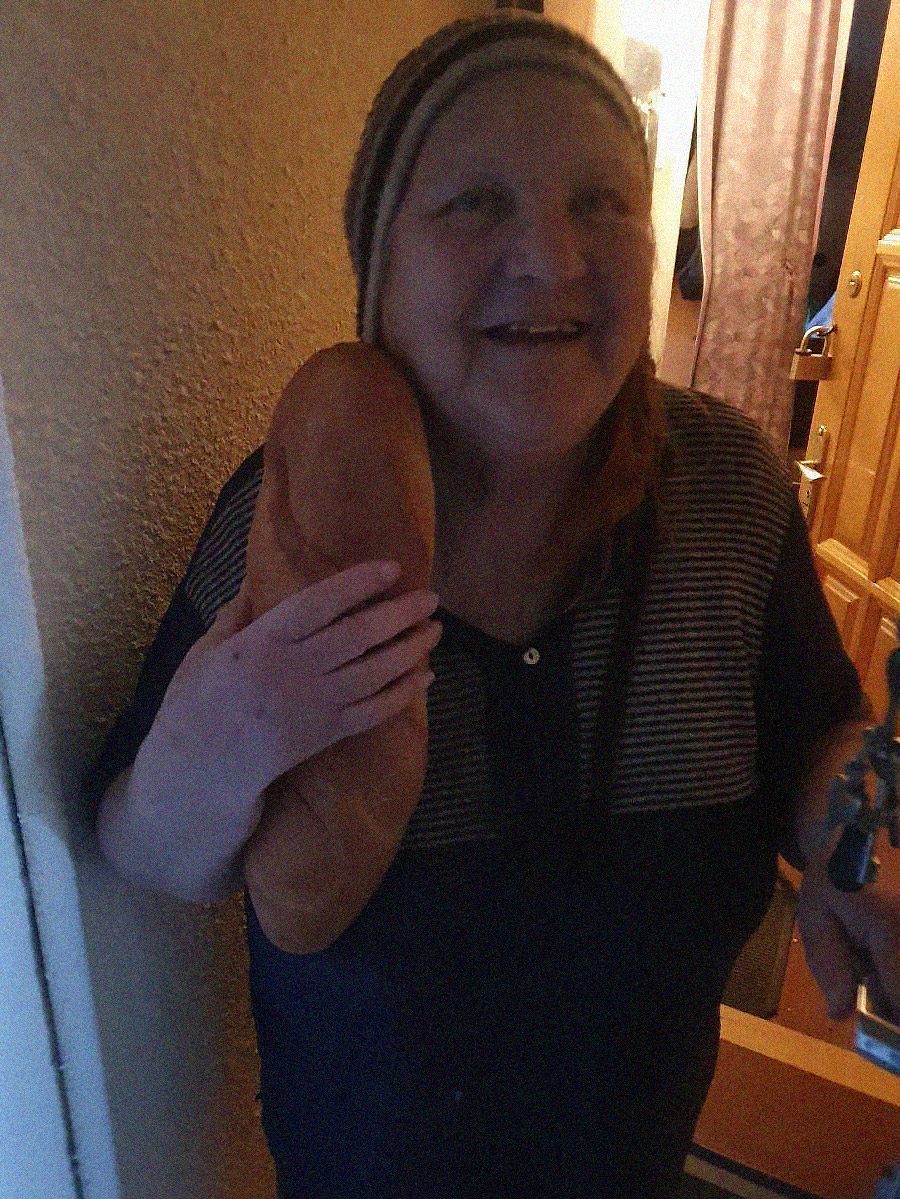
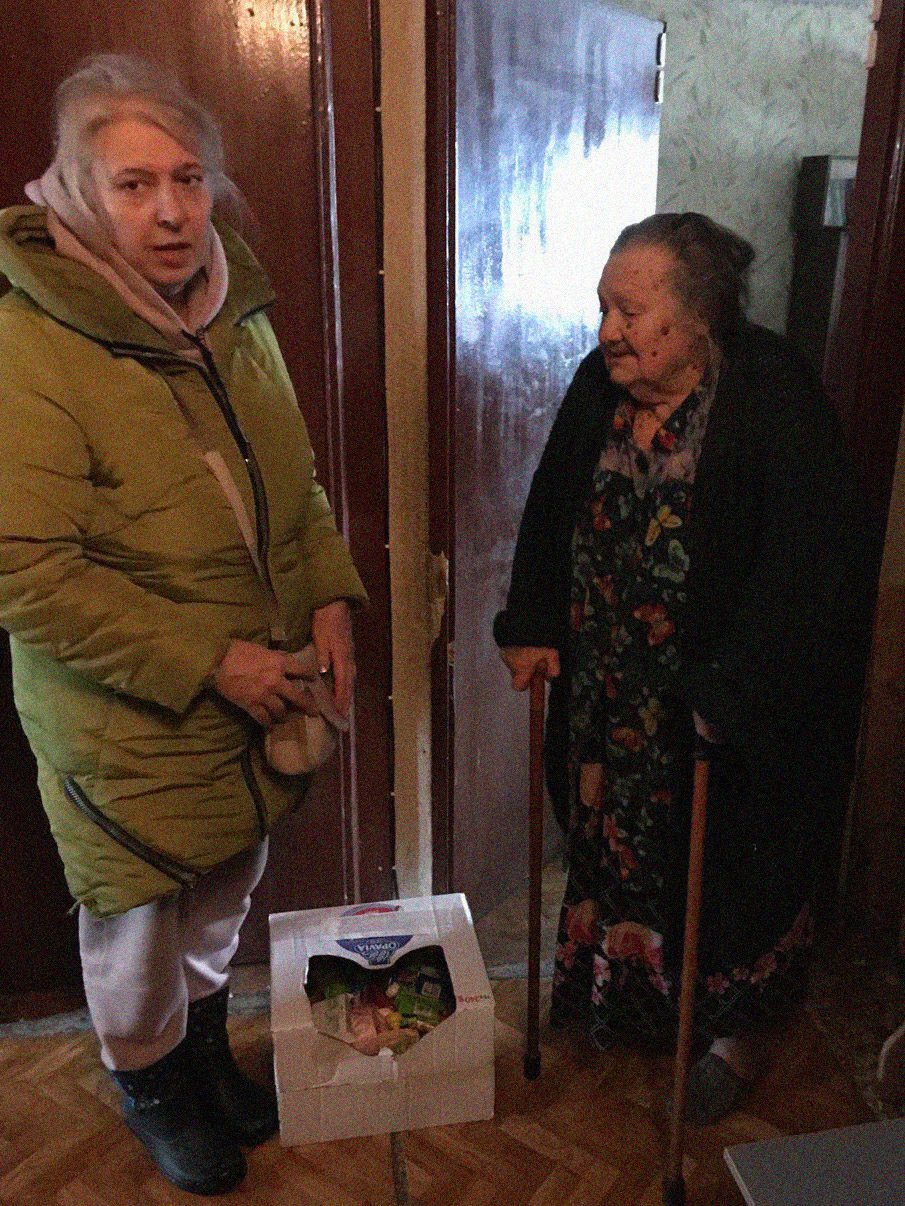
About feelings
I’m not very fearful. Last night at about two o’clock there was a very loud noise near our building. I woke up, opened my eyes, turned over, and fell back asleep. I didn’t stay up waiting. I know that if our building gets hit, that will be it and I can’t change it.
But I do feel better if I can change something. There is a tragedy and there is drama. In some cases, you can change something depending on the person. And sometimes it doesn’t depend on the person, they are just a victim of circumstances. To feel like a victim of circumstances is very bad but if you can affect a change – that is great.
Everyone lives their own life; I live mine to the fullest. When we were building Sarzhyn Yar in Kharkiv it was a daily battle because the mayor’s office did not understand our approach – no granite, no nothing. It was a daily battle. For me, it is normal to fight in civilian life.
Oksana, operational director of a restaurant chain
About volunteering
Our association has several directions: we evacuate people to Dnipro and Poltava, and we have a chatbot where they can apply for and choose what they need: medicine, food, transfer, or help with broken glass. And it automatically gets to us in a table, the operator processes and further coordinates work. I am responsible for the safety of the routes, find out how safe they are, pass on this information, and then our guys take people by bus. I am also responsible for humanitarian aid. We cover almost 70% of the city: perinatal centers, hospitals, oncology centers.

Photo provided by Oksana
We even enter the region, where the military is clearing the territory of orcs. We are told that there is an opportunity to help people because they mostly need more help than in the city. We try to get people out of the villages, but if there are people who do not want to go, we provide them with food.
If it’s hospitals, we cook hot lunches in our restaurants, and drivers and freight forwarders deliver. There are hospitals that have their own kitchen, and institutions where you can cook (for example, schools) – there we bring cakes in large quantities. For about seven days now we have been connecting in another direction – we are delivering food to houses in Kharkiv. We already have about four thousand daily requests.

Photo provided by Oksana
We distribute cakes so that there is enough for at least a week so that we do not have to come repeatedly because there are not enough hands. We mostly deliver to old and lonely retirees who have a meager pension and find it very difficult to stand in line at the store. We also bring to mothers who have small children, food, medicine, diapers.
You don’t even have time to worry about someone else’s pain. I talk on the phone, so I don’t have time. Unfortunately, we have to talk rudely, cut off the phone conversation, and dryly receive only statistics, address, contact. Probably, war is such a thing, where to be able to help, you need to be abstracted because if you start to feel sorry for everyone and spend hours giving psychological help, you won’t help anyone.
About the team
I am from Donetsk myself, so the war is, unfortunately, not news to me. Until February 24, I was the operating director of the restaurant chain. On the second day of the war, we began to find out who could help. There are restaurants that can feed people.
I called the team I worked with and asked them to come if they were not afraid. There were a few brave guys – chefs and bartenders who took risks. I do not blame others, everyone has a different psyche. In a week we gathered an unrealistically huge team. People come with families. Someone unloads, someone packs, someone carries. I don’t know these people – they are just there every day.
We now have 300 people on the team. We do not take everyone. In the part for which I am responsible, I need strict reporting. Therefore, candidates must be responsible. Delivering food is quite emotional, so people need to be resilient. There are people who can start to panic.
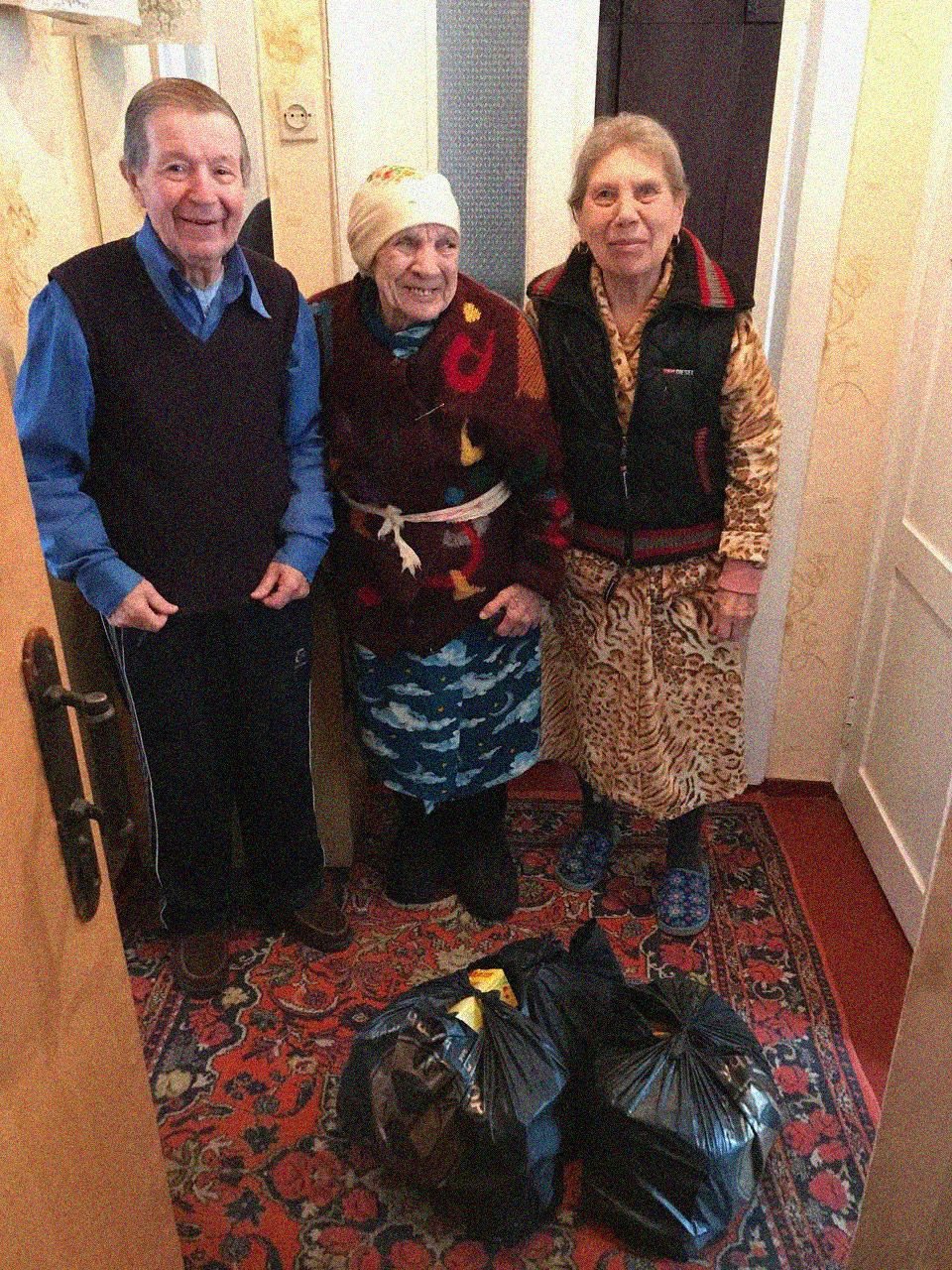
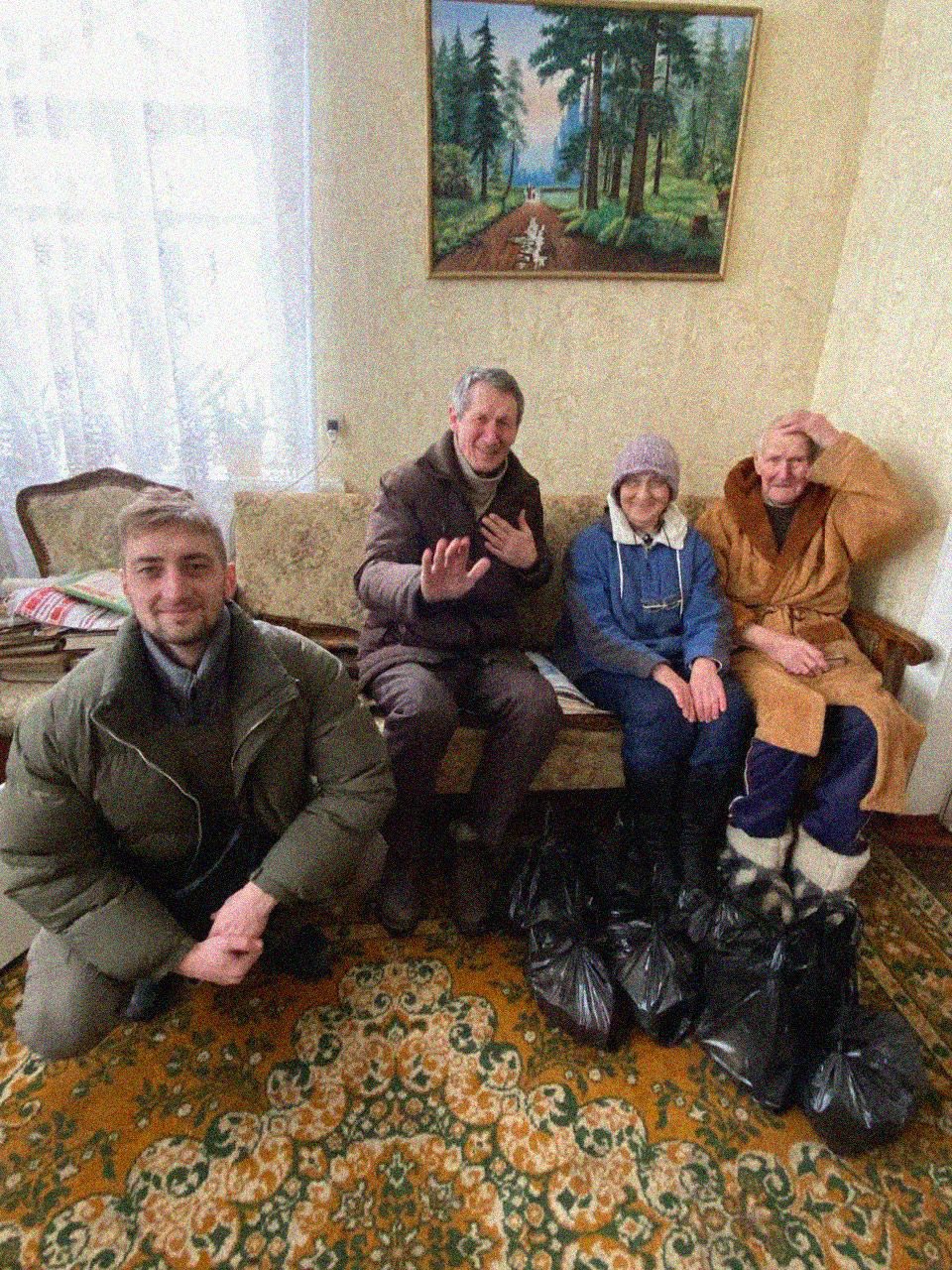
About the reasons to stay
I can’t abandon the soldiers. There are people who have chosen this profession, and I understand that we civilians have the opportunity to escape if the Russians capture the city and destroy the military. These people have no choice but to be killed. I do not blame those who go, but I understand that there are those who need help. In addition, I am from Donetsk and I remember how in 2014 social services stopped coming to bedridden people, and in about two months the occupiers started squeezing out abandoned apartments. They opened them and there were corpses of elderly people who died of starvation.

Photo provided by Oksana
Staying in Kharkiv is my principled position. My eight-year-old daughter and parents are staying here, too. Either we die together or we live together. I don’t see the point in sending my child away so that she can grow up in an orphanage. I know what life awaits her without her mother.
My child was two weeks old when Donetsk was captured. I was younger, and it wasn’t stressful. But it was a shock to me when I woke up at five o’clock in the morning from those explosions. Unfortunately, I can tell them very well by the noise, by the sound – which the hardware attacking where. I looked out the window and realized I was right. II just couldn’t believe it, because I already ran away from it in 2014, bought an apartment – and it’s the same again.
My daughter wants me to buy a house. Until “they stop booming.”
Yesterday she drew a picture. There she and I are. We stand back to back. I hug her because she said she wouldn’t be scared that way. I do not explain to her, I do not want to explain anything to her. She herself understands, and asks: “And will we go to the Canary Islands? And Canada? And the Bahamas? ” I say yes, we will. And then she just looks up the country on the Internet. She is having a lot of fun and is happy. We are not talking about bad things, we are only talking about the positive moments.
About people and problems
I would like people who are not in Kharkiv, who are not being shot at and they, thank God, have not yet understood what the attacks are like, to correctly understand the meaning of war. They behaved correctly and spoke correctly. There are people you help, and they think it’s owed to them. Something was not delivered in half an hour – “Bad service, where can I complain?”. Complain to anyone you like. I try to explain that we buy with our own money, we deliver for free. Well, you know, it’s just the way you’re brought up.
I wish everyone understood, of course. Not literally, they didn’t feel – in any way – what war is. But to understand. Because Volodymyr Zelenskyy correctly says: “Everyone should work!”. Someone on the street comes out like we have, when just people came out, took shovels, and helped with utilities. Journalists are covering and shouting about it to the whole world. In the Second World War, children aged 13-14 worked at a defense plant. I remember that from history books. Even those who have babies in their arms and can’t do anything, their job is to leave. So that we just do not spend our time and energy on them. It’s also a job.
I think that every person today should consciously make decisions, consciously do actions, and understand where to make efforts to make everything as effective as possible. There are still people who, unfortunately, have not yet realized this. Sometimes, we respond to a request, and there is an adult man, forty-two years old, who is able to go out and defend the queue in the store. It hurts me because my boys went out during the shelling to this man. I think that’s wrong.
But still, our society is 99.9% cohesive and sincere. We have one disaster and it united us all. But I want not 99%, but 100%! That’s the only difficulty. Everything else is not a problem, but working issues that can be solved.
The business helps us well with products. They call themselves and offer help -we don’t even have to ask. In addition, we still collect money ourselves, but it’s not enough to cover daily expenses. The main help is not even in money. Yesterday there was a bus from a Transcarpathian village. There people donated what they had at home. They collected throughout Ukraine and brought us: lard, honey, cereals, even eggs. This is more valuable even than the supplies from businessmen and factories. You open such a box. Sometimes you open such a box and there’s a child’s drawing inside.

Photo provided by Oksana
What volunteering does
I’m generally buoyant, basically. I can’t sit still. It’s better for me than doing nothing. I see the result of my work. And I understand that because of this, we are also approaching victory, I want it. It’s logical, if I want it, then I know what to do. I sometimes have to finish what someone else didn’t want to do. So don’t argue too much with me. Because yes – it’s distracting, but it’s not the main thing. I just want to win. And that brings results.
It’s just a job that needs to be done to get results. Of course, it is distracting, although it is not too bad. We don’t talk about what we saw, we don’t tell these people’s stories. It’s forbidden. Just dry statistics, dry work. I don’t want stories. I don’t let the boys tell them. We’ll tell the stories later. I prefer them to be as busy as possible, tired in the evening, just eat and just go to bed. Without any stories, without any emotional stress.
You can help the initiative by the details on the website.

